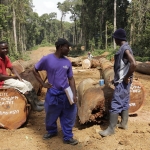Jordanian Privatization Extended to the Dead Sea

AMMAN, JORDAN - The Jordanian government has completed a deal to sell half of its 56 per cent stake in the flagship Arab Potash Company (APC) to Canadian potash giant Potash Corporation of Saskatchewan, turning a deaf ear to the protests of workers, environmentalists and the public alike. The US$173 million sale is part of larger privatization efforts by Jordan's government restarted five years ago at the behest of the World Bank and the United States Agency for International Development (USAID).
The sale threatens to offend Arab nationalist sentiment in the region. APC, the world's eighth largest producer of potash, is a pan-Arab-owned company, the majority share of which has been held until now by Jordan's government, and the remainder owned by the governments of Iraq, Kuwait, Libya and the Saudi-based Islamic Bank. In 1958 APC was given a concession by the Hashemite Kingdom, granting it a one hundred year long monopoly to mine and process potash.
The buyer of the Jordanian government's share, Potash Corporation of Saskatchewan or PotashCorp (PCS), is the world's largest producer of fertilizer products for agribusiness, generating $1,913.8 million in annual revenues. The company controls 65 per cent of the world's potash capacity, which it mines and manufactures at sites in Canada, Chile, the US, Brazil, and Trinidad. Additionally, PotashCorp is the number one producer globally of industrial nitrogen and is a major producer of industrial phosphate, used in the manufacture of computer and TV screens, water softeners, soaps and de-icers.
Potash is used in agricultural fertilizer and livestock and poultry feed. The mineral is the product of evaporated sea water, derived from potassium left in underground deposits under oceans. In case of APC, potash is mined from beneath the ecologically fragile Dead Sea.
Workers Kept in the Dark
Workers at APC protested the government's decision to sell its stake, saying they were against the deal because it endangers labor rights, especially those of more than 1000 laborers working without a contract on a freelance basis. "We do not need the foreign partner," says Khaled Fanatseh, Head of the Workers in Mining Industries Labor Association. "Our laborers and technicians have a vast experience and they don't need foreigners to teach them how to do their jobs."
Jordan's Finance Minister Mohammad Abu Hammour defends the government's decision. "When we signed the agreement there was a commitment from the government and the strategic partner not to fire any employees," he asserts. "Our strategic partner might need more employees due to their action and investment plan for the coming 5 years So we will all benefit."
Khaled Fanatseh, however, counters that the workers and the union were not consulted before the sell off. Nothing written has been given to them and almost a month after the deal was signed, they haven't heard any affirmations from the government or the strategic investor. Their rights, he added, are still not guaranteed.
Public Skeptical of Privatization
The country's privatization program, run under the auspices of Jordan's Executive Privatization Commission (EPC), targets primarily the infrastructure sector, as well as the state-run Jordanian Investment Corporation. The major privatization schemes have included selling 33 per cent of Jordan Cement Factories to the French giant Lafarge, almost 40 per cent of the Jordan Telecommunication Corporation to France Telecom plus the sale of the government's shares in approximately 44 companies amounting to approximately US$143 million.
The EPC has plans to privatize Jordan's electricity companies by early 2004, which will include 100% of the Electricity Distribution Company, 60% of the Central Electricity Generating Company, and 55.4% of the Irbid District Electricity Company. The government also intends to sell off Jordan's three civil airports.
Almost five year after its re-inception, the country's privatization program is still creating controversy among the public. While the government insists its privatization program, supported by the World Bank and USAID, has been yielding positive results on the financial and services fronts, most Jordanians still haven't seen the promised benefits of privatization. In a recent poll conducted by the state-run Privatization Executive Commission, one third of the respondents said they were "not sure" the privatization program is "in any way needed."
Many here criticize the method and execution of the sell-off process, as well as the way the privatization proceeds are being spent. Columnist Dr. Fayez Rabee wrote recently that the selling of half of the government's stake in the Potash was carried out without consulting the Lower House of Parliament, which he claims is in violation of the constitution. But Jordan's Finance Minister Mohammad Abu Hammour argues that Parliament's approval of the law gave the government a green light to carry out the process as a whole. "I think we are working according to the law and not against the law. There is no need to consult the Parliament," he asserts.
Experts also criticize the fact that the government is selling shares in companies that are making profit, and not ailing companies that need the foreign funding and expertise to stand on their feet. Economist Muneer Hamarneh believes that privatization hurts Jordan by "sending money outside" the country, and by allowing foreign strategic partners to make decisions that go against the interests of Jordanians as a whole. "For example, the cement company is exporting most of its production to foreign countries, and this has caused a sharp increase in the prices of cement locally," Hamarneh says, referring to an almost $15 increase in the price of cement since the company was partially privatized.
Finance Minister Mohammad Abu Hammour argues privatization is necessary to make Jordanian industry competitive in a globalized world and in the case of APC, PotashCorp's expertise would benefit Jordan's economy. "We can get the advanced technology, the advanced management. And in addition to that we can get greater market share and the company will help us market out products. If we did not privatize the [Arab] Potash Company its market share would decline gradually," he adds.
Pressure to Privatize
Jordan's privatization program was initiated in the late 1980s when the country unable to service its US$8 billion external debt in 1989 and was bailed out by the International Monetary Fund, at the price of conforming to that institution's neo-liberal prescriptions. The implementation of structural adjustment policies was put on hold, however, during the 1990-91 Gulf War.
But policies of privatization and deregulation were reestablished by King Abdullah in the last several years. In 2000, the Parliament approved a law that governs the privatization process and the spending of proceeds from privatization. In April of that year Jordan joined the World Trade Organization, which mandated that the country remove restrictions on foreign ownership of Jordanian companies amongst other liberalization reforms. In October 2000 Jordan signed a free trade agreement with the United States, which regards Jordan as a key strategic ally in the region, making the country the fourth after Canada, Mexico and Israel to have such an arrangement with the US.
USAID in particular has played a vital role in the privatization push in Jordan. USAID "directly supports U.S. foreign policy interests by promoting open markets and broad-based economic growth," according to the agency. "The USAID economic opportunities strategy is designed to promote trade and investment, support the small and micro-enterprise sector, and advance Jordan's market-based economic restructuring program." USAID helped position Jordan for membership in the WTO and facilitated the establishment of the US-Jordan Free Trade Agreement, including the establishment of the Aqaba Special Economic Zone (ASEZ) in early 2001.
Oula Al Farawati is an independent radio and print journalist based in Amman, Jordan.



